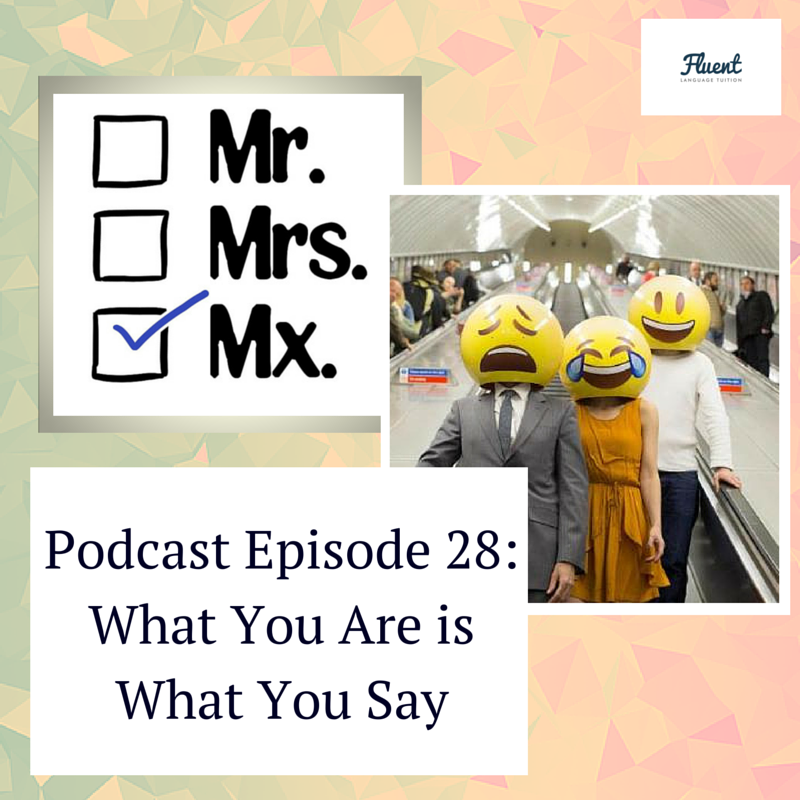Welcome to my first progress report on my own language study. It's pretty comprehensive and longer than my usual blog articles, so I figured we'll just jump in!
First of all, let me give you a quick impression of how the past 3 months have gone:
- I've been spending 1-3 hours per week on my Welsh studies, sometimes a little more and sometimes a little less
- I've been combining a good bunch of resources and several people who talked to me in Welsh
- I'm feeling really positive about my progress and where I'm headed
3 Month Progress
One of the best ways of tracking my language learning progress is blogging about it, which is probably the only way that I know how long I've been at this.
So here's where I'm at: I didn't seriously start learning Welsh until I returned from honeymoon in September. So that makes it about 3 months of study, the often-cited time it takes to build a habit. And I'm shocked at how much progress I have made.
Here is an in-depth update of exactly what has been going on, and how I'm feeling about my 4 core skills.
Understanding Welsh
Understanding groups listening and reading, and I feel significant progress particularly in understanding spoken Welsh. Don't get me wrong. I've still got absolutely no clue what is going on when people talk at normal speed, or when I'm watching TV in Welsh.
But I've been repeating my input and training myself to pick out the words that I do know, and it's made a big difference.
For example:
- I am beginning to anticipate Welsh words based on the English subtitles in TV shows or on Youtube (if you want to know which shows I like, listen to podcast episode 31)
- Understanding and spotting patterns that occur regularly in Welsh is becoming easier as well, which means I'm now able to know where sentences start and end, and if they're in future, past, or present tense
In the coming months, I would love to be able to understand more social media posts in Welsh. Lucky for me, most Welsh speakers are bilingual (Welsh/English) and post in both languages.
The progress goal here will be to recognise and know more nouns and patterns, which I can study just by tracking what I look up in the dictionary.
Speaking Welsh
I've called this section "speaking", but I actually mean producing language in both speaking and writing. Here again, I feel like my progress has been awesome.
I'm absolutely ready to speak Welsh at any time. Sure, it will be terrible Welsh. It will be full of mistakes, and I'll last about 20 seconds without an English word.
But none of that matters. It isn't about the quality of my speaking. It's about doing it over and over again, little and often.
2 weeks ago, we went out for drinks with some new people. One of them turns out to be Welsh and we started talking. I wasn't Shakespeare, but I managed to ask her if she wants a drink, talk about my studies and a little bit about where I'm from. Respectable progress for 3 months of slow burn study!
In the coming months, my next goal is that I'd like to speak Welsh on the phone. Calling up a B&B or a language school with an enquiry is a simple enough task, but it has instant feedback in case I can't get my words out.
Here's How I've Been Studying My Language
- Community Class
I went to a class called Clwb Siârad in Preston, where I met a great mix of native speakers and language learners. The most amazing thing about Welsh Club is the fact that they're "offline polyglots" - a large group of language lovers in my county that I never knew about. The Welsh learners were speaking and learning more than just Welsh, so that our lesson ended up featuring 6 languages altogether.
- 1-to-1 Tuition
Working with a 1-to-1 tutor is a huge benefit to my speaking skills! I've not been able to commit to weekly lessons, but decided not to let that stop me. Instead, I book a session with Mererid around once a month to top up and consolidate what I've been working on.
I learn something new in every tutoring session, and always come away feeling inspired and positive.
- Say Something in Welsh podcast
This podcast is currently my main speaking resource, and prompts the listener to speak continuously and right from the start. I worked with this concept before when I tried Michel Thomas, but this system of focusing entirely on patterns is easier to follow and more effective in my mind.
Main downside: I've got to find vocabulary resources for words somewhere else, meaning it trains patterns and structure way before it adds many words.
Believe it or not, Instagram is a regular place for me to get just a little bit of Welsh language and practice what I'm doing. I've started giving every post a level of "added" Welsh by talking about the photo in both English and Welsh. The kind community of Instagram users out there (especially #iglc folks) has been great at helping me with corrections.
In the coming months, I also want to add the Cwrs Mynediad book, which I downloaded as a £5 app for my iphone. And of course, there's that Duolingo thing which has now got the Welsh language. I am not a big Duolingo fan, but happy to give it a try.
A Problem I Need to Solve: No Study Corner
When I'm at my laptop, my mind switches into work mode and language learning is more difficult (priming affects how we learn languages). I can tell I'm more engaged and make better progress when I am studying differently, on the couch or the stairs.
This explains why building my Memrise course and watching the BBC videos has fallen behind - both of those only work on a desktop AFAIK.
In the next month, I want to find a study corner in my house. It won't be easy, because my house is pretty tiny, but with some creativity I think the Welsh corner is going to be a great resource.
All in All: A Feeling of Ease
Welsh is the first language that I am truly teaching myself, without attending any regular group classes. It's also the most modern self-taught process I've ever used, because most of my first languages were studied in school in the 90s when mobile phones looked like this:
I'm wondering what exactly is different between this language and Russian, my previous experiment. Russian had the added difficulty of Cyrillic, so it was slightly less accessible. I also didn't feel the same level of curiosity in the end - Wales and Welsh are more exciting to me right now, and that is an entirely personal thing.
And ultimately, the materials and speakers I've worked with are just so supportive and welcoming. They are what's made my studies feel easy, and I think a feeling of ease is the key to keeping going.
Overall, I feel like things are going well. I have regular success moments, even tiny things like completing an episode of my study podcast. Those are the key to keeping going, because I never feel like I'm stuck.
Saying I'm feeling ease does not mean I'm actually "good at Welsh" yet. It just means that I'm feeling progress without frustration. But ultimately, my goals and results belong to me and this is exactly the result I am happy with.
Book to Try: Fluency Made Achievable
If you're learning a language and you haven't read my book Fluency Made Achievable yet, check it out today. Fluency Made Achievable is my guide to what it takes to learn a language and do what's necessary for achieving that feeling of ease and fluency.
It goes into depth about those 4 core skills and helps you understand why they matter and how you can create easy routines for yourself in language learning.
And now that I'm learning a new language again, I can tell even more just how useful it is to get your practice right and I want you to benefit from the same insights.
If you do own the book already, let me know how you used it in your own learning routine in the comments below!
And of course, please share your thoughts and updates on YOUR language learning routines. In other words, I invite you to comment on this post and tell me more about your own studies. I love hearing what you're up to!








